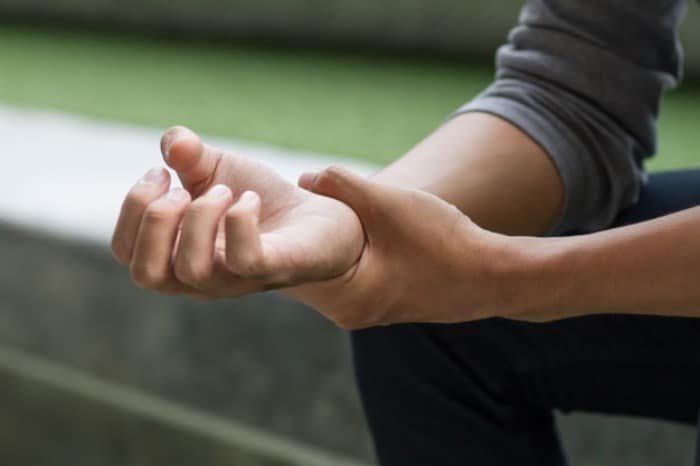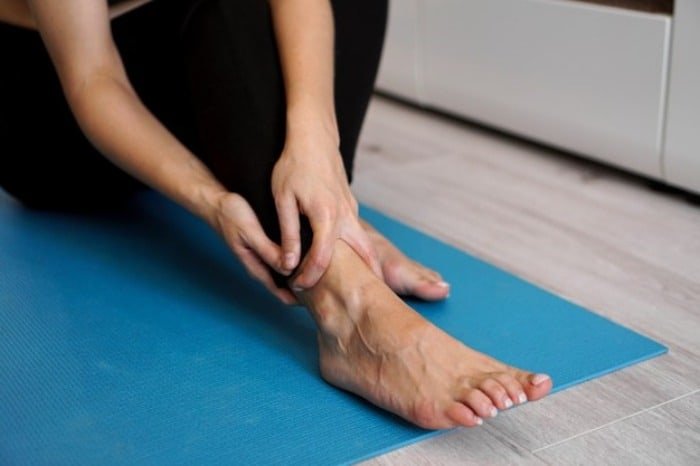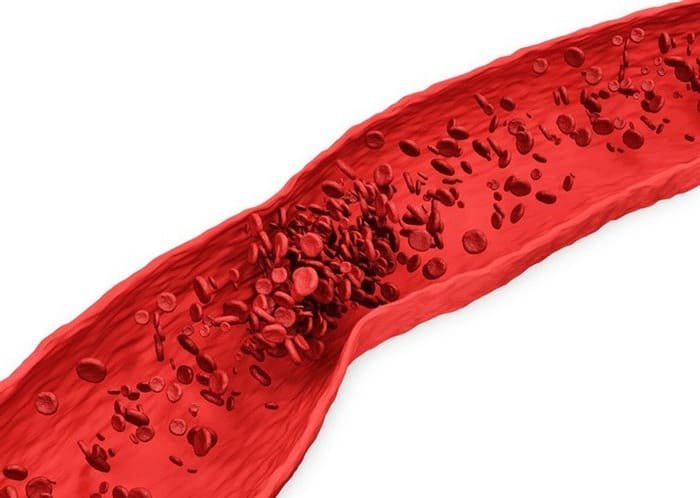Guillain-Barré SyndromeWhat is it?
Guillain-Barré syndrome is a rare disorder where the immune system attacks the nerves, typically leading to weakness and tingling in the limbs. These sensations can spread quickly and ultimately paralyze the entire body; in its most severe form, Guillain-Barré syndrome is a medical emergency. Most affected individuals require hospitalization for treatment.
If you read in the health and wellness sectionSelMagzThe exact cause of Guillain-Barré syndrome is unknown; however, two-thirds of patients report signs of an infection in the six weeks prior. These include respiratory or digestive infections or the Zika virus. There is no known cure for Guillain-Barré syndrome, but various treatments can reduce symptoms and shorten the duration of the illness.
Although most individuals recover, the mortality rate is between 4% and 7%, with 60% to 80% being able to walk again within six months. Patients may experience long-term effects like weakness, numbness, or fatigue.
Symptoms of Guillain
Guillain-Barré syndrome often starts with tingling and weakness in the legs and feet, spreading to the upper body and arms. About 10% of affected individuals have symptoms that start in the arms or face, and as Guillain-Barré syndrome progresses, muscle weakness can lead to paralysis.
The symptoms and signs of Guillain-Barré syndrome may include:
- A tingling sensation in the fingers, toes, ankles, or wrists
- Weakness in the legs that spreads to the upper body
- Unsteady walking or inability to walk or climb stairs
- Problems with facial movements, including speaking, chewing, or swallowing
- Double vision or inability to move the eyes
- Severe pain that may feel crampy and can worsen at night
- Trouble controlling the bladder or bowel function
- Fast heart rateHigh or low blood pressure
- Difficulty breathingIndividuals with Guillain-Barré syndrome usually experience weakness within two weeks after the onset of symptoms.
- Types of Guillain Syndrome
Guillain-Barré syndrome was once thought to be a single disorder but occurs in various forms. The main types include:

Acute inflammatory demyelinating polyneuropathy, which is characterized by muscle weakness that starts in the lower body and moves upwards.
Miller Fisher syndrome, where paralysis starts in the eyes and is accompanied by unsteady walking.
When to See a Doctor?
If you have mild tingling in your fingers that doesn’t seem to spread or worsen, contact your doctor. Seek immediate medical attention if you experience any of the following severe symptoms:
Tingling that started in the legs or toes and is now moving upwards in your body
Tingling or weakness that is rapidly spreading
- Difficulty breathing or
- Shortness of breath
- When lying down flatChoking on salivaGuillain-Barré syndrome is a serious illness that requires immediate hospitalization as it can worsen quickly. The sooner appropriate treatment begins, the better the chances of a positive outcome.
- Causes of Guillain
The exact cause of Guillain-Barré syndrome is unclear. This disorder usually appears several days or weeks after a respiratory or gastrointestinal infection, and rarely, surgery or vaccination can lead to Guillain-Barré syndrome. Recently, cases have been reported following Zika virus infection. Guillain-Barré syndrome may occur after being infected with the COVID-19 virus.
In Guillain-Barré syndrome, the immune system, which typically attacks only invading organisms, begins attacking the nerves. In AIDP, the most common form of Guillain-Barré syndrome, the protective covering of the nerves (myelin sheath) becomes damaged, which prevents signals from being sent to the brain via the nerves and leads to weakness, numbness, or paralysis.
Risk Factors and Risk Exacerbation for Guillain-Barré Syndrome
Guillain-Barré syndrome can affect all age groups, but the risk increases with age and is also more common in men than women.

Guillain-Barré syndrome may occur after:
In most cases, infection with Campylobacter, a type of bacteria often found in undercooked poultry
Viruses
- Influenza
- CytomegalovirusEpstein-Barr virus
- Zika virus
- Hepatitis
- A, B, C, and E
- The virus that causesAIDS
- HIVMycoplasma pneumoniaSurgeryHodgkin lymphoma
- Rarely,
- Influenza vaccine
- or childhood vaccinations
- COVID-19 virusComplications of Guillain-Barré SyndromeGuillain-Barré syndrome affects your nerves, and since nerves control your movements and bodily functions, people affected may experience:
- Respiratory issues
Weakness or paralysis can affect the muscles that control your breathing, which is a potentially life-threatening complication. About 22% of people with Guillain-Barré syndrome require hospitalization for breathing support within the first week.
Residual numbness or other sensations
Most individuals with Guillain-Barré syndrome fully recover or only experience slight weakness, numbness, or tingling.
Cardiac and blood pressure issues

Blood pressure fluctuations and irregular heart rhythms (arrhythmias) are common side effects of Guillain-Barré syndrome.
Pain
One-third of people with Guillain-Barré syndrome experience severe nerve pain that can be alleviated with medication.
Bowel and bladder dysfunction
Slow bowel function and urinary retention may result from Guillain-Barré syndrome.
Blood clots
People who are immobile due to Guillain-Barré syndrome are at risk for blood clots, and until you can walk independently, taking blood-thinning medications and wearing compression stockings is advised.
Pressure sores
Immobility puts you at risk for pressure sores. Frequent changes in position may help prevent this issue.
Recurrence of the Disease

Between 2% and 5% of people with Guillain-Barré syndrome experience a recurrence of the disease. Severe and early symptoms of Guillain-Barré syndrome significantly increase the risk of serious long-term complications, and rarely, death may occur due to complications such as respiratory distress syndrome and heart attacks.
Diagnosis of Guillain-Barré SyndromeDiagnosing Guillain-Barré syndrome in its early stages can be challenging. Its symptoms and signs are similar to those of other neurological disorders and may vary from person to person. Your doctor will likely start with a thorough medical history and physical examination.Your doctor may then recommend:
Lumbar puncture (spinal tap)
A small amount of fluid is removed from the spinal canal in your lower back. This fluid is tested for changes that usually occur in individuals with Guillain-Barré syndrome.
Electromyography
Thin needle electrodes are inserted into the muscles your doctor wants to study. The electrodes measure electrical activity in the muscles.
Nerve conduction velocity
Electrodes are placed on the skin over the nerves. A small shock is applied to measure the speed of nerve signal transmission.
Treatment of Guillain-Barré Syndrome
There is no cure for Guillain-Barré syndrome, but two types of treatment can speed recovery and reduce the severity of the illness:
Plasma exchange (plasmapheresis)
The liquid part of the blood (plasma) is removed and separated from the blood cells, which are then returned to your body to produce more plasma to compensate for what was removed. Plasmapheresis may help by circulating plasma from
Specific antibodies that contribute to the immune system’s attack on the peripheral nerves.

Immunoglobulin therapy
Immunoglobulin contains healthy antibodies from blood donors and is injected via IV (intravenously). High doses of immunoglobulin can block harmful antibodies that may play a role in causing Guillain-Barré syndrome. These treatments are equally effective, and combining them or administering one after the other is not more effective than using just one method.
Common medications
You will also be prescribed medication to:Relieve pain that can be severePrevent blood clots that can occur during immobility.
Care and Support for Individuals with Guillain-Barré Syndrome
Diagnosing Guillain-Barré syndrome can be emotionally challenging. Although most people eventually fully recover, this condition is generally painful and requires hospitalization and months of rehabilitation, and you must cope with mobility limitations and fatigue.
Individuals with Guillain-Barré syndrome require physical assistance and therapy before and during recovery. Your care may include:
Movement assistance for arms and legs by caregivers to promote flexibility and strength in the muscles
- Physical therapy during recovery to help deal with fatigue and rebuild appropriate strength and movement
- Training with adaptive devices, such as a wheelchair or braces, to provide you with mobility and self-care skills.

Hand pain
Tingling in the wrist
Foot pain
- Numbness in the foot due to Guillain-Barré syndrome
- Respiratory problems
- Respiratory issues are complications of Guillain-Barré syndrome







